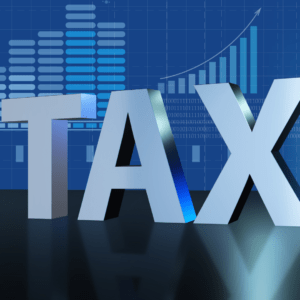2021 Tax Planning Tips for the 2021 personal tax preparation season. See below for a list of tax planning considerations. Please contact us for further details or to discuss whether these may apply to your tax situation.

Focus LLP Tax Accounting Calgary 2019 3rd Quarter Tax Tips and Traps
1) Certain expenditures made by individuals by December 31, 2021 will be eligible for 2021 tax deductions or credits, including digital news subscriptions, moving expenses, child care expenses, charitable donations, political contributions, registered journalism organization contributions, medical expenses, alimony, eligible employment expenses, union, professional or like dues, carrying charges and interest expense. Ensure you keep all receipts that may relate to these expenses.
2) There are benefit clawbacks (required repayments) associated with certain COVID-19 related benefit payments, depending on annual earnings. The amounts for 2021 are:
- Canada recovery benefit (CRB) – $0.50 of every dollar earned over $38,000 (excluding CRB amounts)
- Employment insurance – $0.30 of every dollar earned over $70,375
3) While some tax was withheld on COVID-19 related benefits, such as Canada response benefit (CRB), Canada recovery caregiving benefit (CRCB), Canada recovery sickness benefit (CRSB) and employment insurance benefit payouts, in many cases, it will not be sufficient to cover the tax owning on these receipts.
4) Some individuals who received certain COVID-19 benefits in 2020 and whose income was below $75,000 were effectively provided with a one-year extension to their personal tax payment deadline. Individuals who enjoyed this temporary relief should ensure that they have the funds to pay their 2020 and 2021 personal tax liabilities when they come due on April 30, 2022.
5) A senior whose 2021 net income exceeds $79,845 will lose all, or part, of their old age security Senior citizens will also begin to lose their age credit if their net income exceeds $38,893. Consider limiting income over these amounts, if possible. Another option would be to defer receiving Old Age Security receipts (for up to 60 months) if it would otherwise be eroded due to high-income levels.
6) Consider selling non-registered securities, such as a stock, mutual fund or exchange-traded fund, that has declined in value since it was bought to trigger a capital loss that can offset capital gains in the year. Anti-avoidance rules may apply when selling and buying the same security.
7) Consider restructuring your investment portfolio to convert non-deductible interest into deductible interest. It may also be possible to convert personal interest expense, such as interest on a house mortgage or personal vehicle, into deductible interest.
8) If you have equity investments or loans made to a Canadian small business that has become insolvent or bankrupt, an allowable business investment loss (ABIL) may be available. For loans to corporations to be eligible, the borrower must act at arm’s length. ABILs can be used to offset income beyond capital gains, such as interest, business or employment income.
9) If a commercial debt you owe (generally a business loan) has been forgiven, special rules apply that may result in additional taxes or other adjustments to the tax return.
10) Individuals 18 years of age and older may deposit up to $6,000 into a tax-free savings account in 2021. An additional $6,000 may be contributed starting on January 1, 2022. Consider a catch-up contribution if you have not contributed the maximum amounts for prior years. An individual’s contribution room can be found online on CRA’s My Account.
11) A Canada education savings grant for registered education savings plan (RESP) contributions equal to 20% of annual contributions for children (maximum $500 per child per year) is available. In addition, lower-income families may be eligible to receive a Canada Learning Bond.
12) A registered disability savings plan (RDSP) may be established for a person who is under the age of 60 and eligible for the disability tax credit. Non-deductible contributions to a lifetime maximum of $200,000 are permitted. Grants, bonds and investment income earned in the plan are included in the beneficiary’s income when paid out of the RDSP.
13) Canada pension plan (CPP) receipts may be split between spouses aged 65 or over (application to CRA is required). Also, it may be advantageous to apply to receive CPP early (age 60-65) or late (age 65-70).
14) Are you a U.S. resident, citizen or green card holder? Consider U.S. filing obligations with regards to income and financial asset holdings. Filing obligations may also apply if you were born in the U.S.
Information exchange agreements have increased the flow of information between CRA and the IRS. Collection agreements enable CRA to collect amounts on behalf of the IRS.
15) If income, forms or elections have been missed in the past, a voluntary disclosure to CRA may be available to avoid penalties.
We trust you enjoyed this article “2021 Tax Planning Tips”. If you have any questions relating to this post or any other tax topics, please feel free to contact us at 403-509-3290 or info@focusllp.ca
Don’t Let the Complexities of Your Accounting & Taxation Needs Burden You Any Longer
When it comes to providing accounting services, our team works diligently to ensure you receive the maximum benefit available to you, while making sure all your tax filing requirements are met.
We focus on providing services to private corporations and their shareholders and we can provide you with a wide-range of services to meet your needs.
Our team can assist you in all aspects of your day-to-day accounting and tax requirements.
